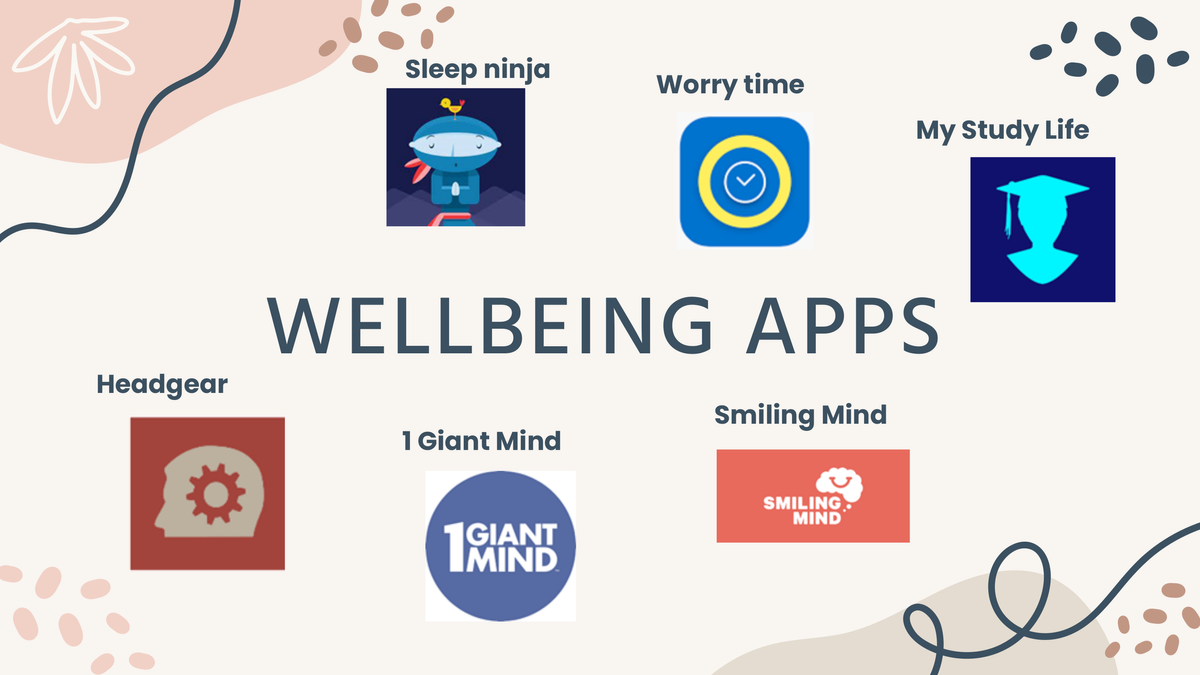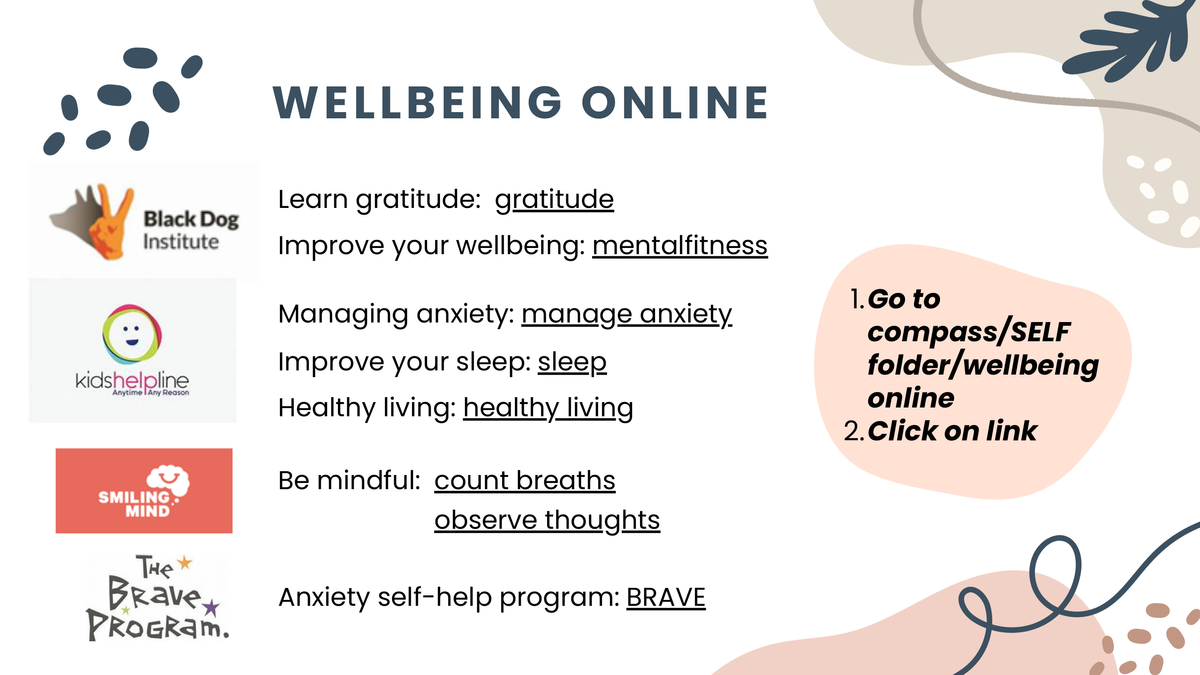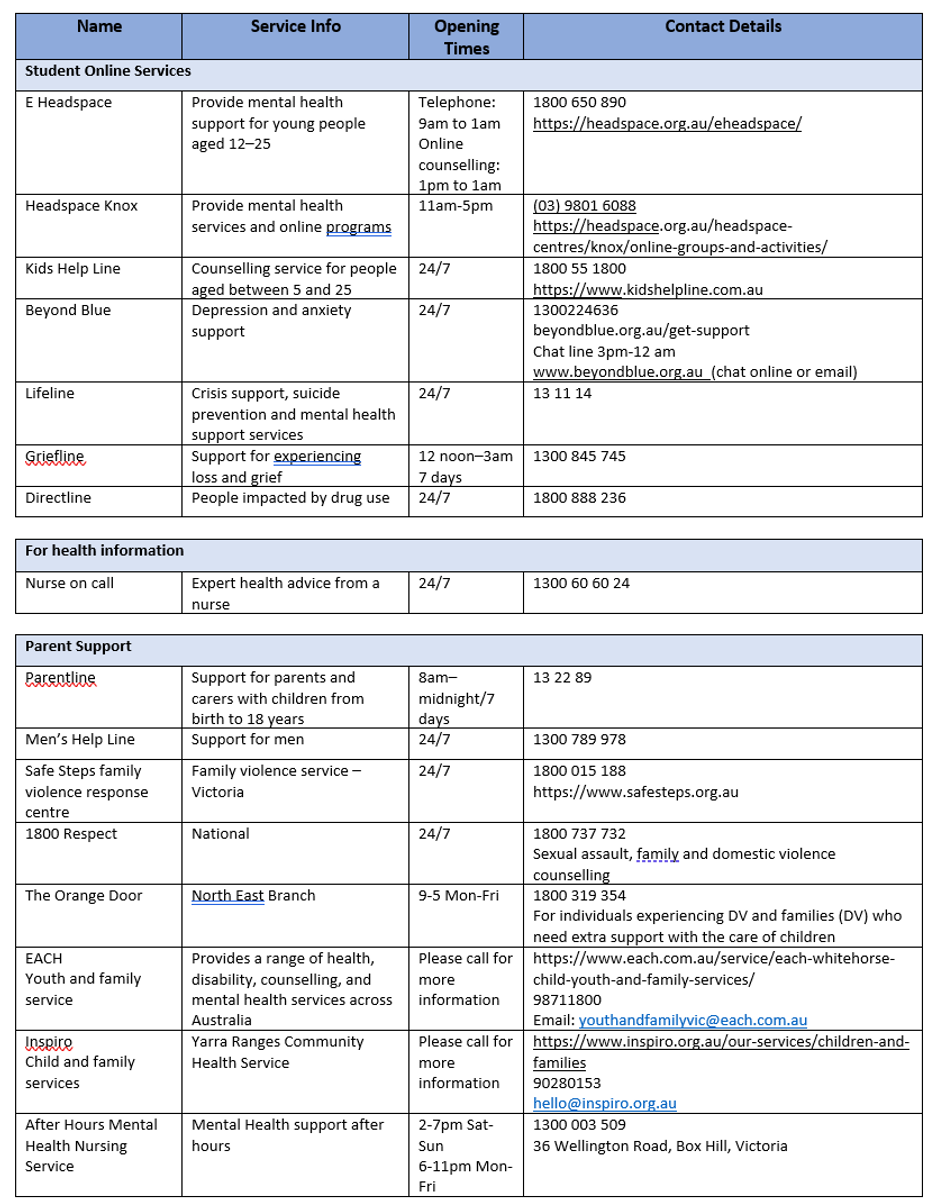Wellbeing

These colourful origami hearts were made by students during Chill Space, the wellbeing lunchtime group that runs on Thursdays. Origami is a mindful activity that can help to cope with anxiety and stress and provide a sense of accomplishment and relaxation. Some students chose to write notes on their hearts to pass on to friends or family, while others donated their hearts to decorate the Wellbeing room.
DENTAL CARE FOR TEENAGERS: 12-18 YEARS
Brushing teeth is important for keeping teeth clean and preventing tooth decay, bad breath and gum disease. But teenagers don’t always brush their teeth, and there could be many reasons for this. For example, your child might not understand the importance of brushing teeth and gums, or they might just forget to do it. Try to look out for signs that your child isn’t brushing their teeth. For example, their toothbrush hasn’t been used, their teeth might not look clean, or they have swollen or bleeding gums or bad breath. You can encourage your child to brush their teeth twice a day. Talking about why it’s good to brush your teeth could be a good place to start.
Toothbrushes: choosing and keeping them clean
When you and your child are choosing a toothbrush, you can look for the following:
- soft bristles: these won’t damage your child’s gums or tooth enamel
- a long handle: this will help your child reach all their teeth
- a small head: this will make it easy for your child to move the toothbrush one tooth at a time around their mouth
- electric and manual toothbrushes are equally good, as long as you use them properly to clean all the surfaces of all your child’s teeth. Electric toothbrushes can be useful if your child has poor hand control. If you’re deciding between a manual and an electric toothbrush, it’s OK to let your child choose
Fluoride and dental care
Fluoride is a mineral that keeps teeth strong and prevents tooth decay. Fluoride is safe and works best when your child gets it in very small amounts throughout the day in:
- toothpaste – at this age, your child can use regular adult fluoride toothpaste
- tap water – most tap water in Australia has added fluoride
- foods containing fluoride, like fruit and vegetables
- for children who are at high risk of developing tooth decay, dentists might also prescribe gels and pastes with extra fluoride.
Cleaning teeth isn’t a guarantee against tooth decay. Diet is also important. Encourage your child to avoid sugary foods and sugary drinks like fruit juice, soft drink and flavoured milk. Smoking, alcohol and other drugs can also affect oral health. There’s no safe level of alcohol, smoking and drug use for teenagers.
Visiting the dentist
It’s important for your child to have regular dental check-ups. Your dentist will tell you how often your child needs a check-up. Dentists usually recommend every 6-12 months. Your child might also see other oral health professionals, depending on your child’s needs. These include dental therapists, dental hygienists, oral health therapists or specialist dentists like paediatric dentists or orthodontists.
Information sourced from Raising Children Network Dental care for teenagers | Raising Children Network
WELLBEING ONLINE
There are so many wellbeing resources online it can be hard to know where to start. We’ve put together this collection of websites and Apps that we recommend you check out. All are free, evidence based, mostly Australian and can be used to boost your mental health. There’s something for everyone here!!
HEALTH AND WELLBEING SERVICES/CONTACTS -
KNOX, MAROONDAH, YARRA RANGES





